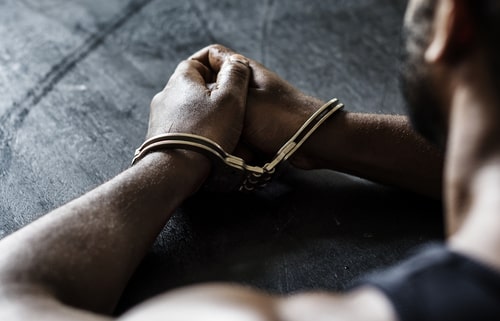2591 Dallas Parkway, Suite 207A, Frisco, TX 75034
Free Consultations
469-333-3333
 |
DO I HAVE TO GO TO TRIAL IN TEXAS? |
Recent Blog Posts
Can I Be Forced to Submit to a DWI Blood Test?
 Texas state law is unusually lax when it comes to allowing forced blood draws in DWI cases. A variety of circumstances could allow police officers to take your blood without your consent and use the results against you in a DWI prosecution. This can leave you in serious legal jeopardy on top of feeling violated. If you have been charged with a DWI based on a failed forced blood test, you will need to work with an attorney who is experienced at challenging these tests. Even if the blood test you were made to submit to was legal in Texas, there are other ways to challenge the validity of the results.
Texas state law is unusually lax when it comes to allowing forced blood draws in DWI cases. A variety of circumstances could allow police officers to take your blood without your consent and use the results against you in a DWI prosecution. This can leave you in serious legal jeopardy on top of feeling violated. If you have been charged with a DWI based on a failed forced blood test, you will need to work with an attorney who is experienced at challenging these tests. Even if the blood test you were made to submit to was legal in Texas, there are other ways to challenge the validity of the results.
When Is a Blood Test Mandatory in DWI Cases?
When you are suspected of a DWI, there is a chance you could be forced to submit to a blood test without your consent. This can happen if the arresting officer reasonably believes you are intoxicated and one of these circumstances exist:
How Reliable are Field Narcotics Test Kits?
 It is a common beginning to many Texas drug possession prosecutions - during a traffic stop, a police officer spots a substance he thinks could be an illegal narcotic. The suspected contraband could be something as suspicious as a small bag of white powder, or as mundane as an unidentifiable sticky substance on an object in the back seat. The officer reaches for an inexpensive field test kit, and the results show that the substance is indeed a narcotic - much to the surprise of the driver.
It is a common beginning to many Texas drug possession prosecutions - during a traffic stop, a police officer spots a substance he thinks could be an illegal narcotic. The suspected contraband could be something as suspicious as a small bag of white powder, or as mundane as an unidentifiable sticky substance on an object in the back seat. The officer reaches for an inexpensive field test kit, and the results show that the substance is indeed a narcotic - much to the surprise of the driver.
Texas police officers rely heavily on these field test kits to back up their suspicions in order to make arrests and kick off criminal prosecutions. However, these tests sometimes produce false positives, sending innocent Texans to jail. If you have been charged with a drug crime, finding a strong attorney should be your first priority right now. Texas drug laws are notoriously strict.
What Is the Difference Between Stalking and Harassment?
 In Texas, stalking and harassment are both criminal offenses. You may sometimes hear them used interchangeably, but while they have similarities, they are separate crimes. Harassment is usually a misdemeanor and can be charged based on a single incident. Stalking is generally a third-degree felony and must be based on a pattern of behavior. If you have been charged with either stalking or harassment in Texas, it is important that you take the charges very seriously and contact an experienced criminal defense attorney.
In Texas, stalking and harassment are both criminal offenses. You may sometimes hear them used interchangeably, but while they have similarities, they are separate crimes. Harassment is usually a misdemeanor and can be charged based on a single incident. Stalking is generally a third-degree felony and must be based on a pattern of behavior. If you have been charged with either stalking or harassment in Texas, it is important that you take the charges very seriously and contact an experienced criminal defense attorney.
What Do Stalking and Harassment Have in Common?
Both offenses are considered a form of “mental assault.” This means that both stalking and harassment are a sort of attack on a person that does not involve actual physical violence. In fact, neither offense requires that the perpetrator gets anywhere near the victim - both offenses can be carried out entirely online or over the phone. Harassment and stalking both involve, to varying degrees, frightening or abusing the victim.
What Are the Types of Bail Bonds in Texas?
 After an arrest, defendants must typically put up some type of bail bond before they can be released from jail. The amount of bail set is proportionate to both the crime alleged and the defendant’s personal flight risk. Bail is used as a way of ensuring that a defendant will show up for his court appearances if he is allowed to leave the jail and go free until sentencing.
After an arrest, defendants must typically put up some type of bail bond before they can be released from jail. The amount of bail set is proportionate to both the crime alleged and the defendant’s personal flight risk. Bail is used as a way of ensuring that a defendant will show up for his court appearances if he is allowed to leave the jail and go free until sentencing.
Unfortunately, for some, posting bond can be difficult. Yet, when you or your loved one is stuck in jail, nothing seems more important. There are a handful of ways to pay bond in Texas. In some cases, an attorney writ bond can be used to get out of jail faster. If you or your loved one has been arrested and is in jail, you should contact an attorney as soon as possible.
What Ways Can I Pay Bail in Texas?
Once you have seen a judge and your bond has been set, there are several options for paying it and being released from jail. However, if you do not want to remain in jail until you can see a judge, an attorney writ bond is likely your best - and only - option to get released. In Texas, the main ways to post bail include:
Who Can Get Out of Jail on an Attorney Writ Bond?
 If you get arrested over the weekend, an attorney writ bond may be the only way to get you out of jail before Monday morning when you could see a judge. People charged with most misdemeanors are eligible to be released from jail on an attorney writ bond before seeing a judge. There are, however, exceptions. If you are trying to find a way to get yourself or a loved one out of jail on an evening or weekend, the Law Offices of Biederman & Burleson may be able to help. After being arrested for any charge, it is important to get in contact with a qualified attorney as soon as you can, even if that means calling from jail.
If you get arrested over the weekend, an attorney writ bond may be the only way to get you out of jail before Monday morning when you could see a judge. People charged with most misdemeanors are eligible to be released from jail on an attorney writ bond before seeing a judge. There are, however, exceptions. If you are trying to find a way to get yourself or a loved one out of jail on an evening or weekend, the Law Offices of Biederman & Burleson may be able to help. After being arrested for any charge, it is important to get in contact with a qualified attorney as soon as you can, even if that means calling from jail.
Who Is Eligible for an Attorney Writ Bond in Texas?
Most misdemeanor arrestees are eligible to get out of a Texas jail before seeing a judge if a qualified attorney is willing to sign a writ bond. You may be eligible for a writ bond if you were arrested for:
What Is "Reasonable Suspicion" in a DWI Stop?
 Texas police officers cannot pull over a vehicle unless they have what is called “reasonable suspicion” that the driver is breaking the law. Arguing that the officer who arrested you for DWI did not have reasonable suspicion for the initial stop is one way that a lawyer can challenge a DWI charge. If the traffic stop was illegal in the first place, any charges stemming from it are likely to be dismissed. This is a very important standard to understand in the context of DWI defense.
Texas police officers cannot pull over a vehicle unless they have what is called “reasonable suspicion” that the driver is breaking the law. Arguing that the officer who arrested you for DWI did not have reasonable suspicion for the initial stop is one way that a lawyer can challenge a DWI charge. If the traffic stop was illegal in the first place, any charges stemming from it are likely to be dismissed. This is a very important standard to understand in the context of DWI defense.
If you have been charged with a DWI in Texas, you will need an experienced attorney to give you the best odds of beating the charge. Texas’s DWI laws can be harsh and have a negative impact on your life for a long time.
What Does “Reasonable Suspicion” Mean?
An officer has reasonable suspicion for a traffic stop if an objective person who has observed what the officer has observed would come to the conclusion that the driver is violating a law. The officer must be able to point to observable, objective facts that led him to believe you were doing something illegal. A traffic stop cannot be based on a mere “hunch” or “gut feeling.”
Is it Illegal to Cheat on a Drug Test?
 Drug tests are administered all the time, by employers and probation officers alike. Most people have had to take one at least once, whether to satisfy a potential employer’s policy or to satisfy a condition of parole after previous drug charges. Drug tests can be particularly frustrating for legal users of medicinal low-dose THC. For some people, it may be tempting to find a way to cheat the test. Unfortunately, in Texas, falsifying the results of a drug test may be a crime that could land you in jail - depending on how you go about faking the results. If you have been arrested for falsifying the results of a drug test, contacting an attorney should be your first priority.
Drug tests are administered all the time, by employers and probation officers alike. Most people have had to take one at least once, whether to satisfy a potential employer’s policy or to satisfy a condition of parole after previous drug charges. Drug tests can be particularly frustrating for legal users of medicinal low-dose THC. For some people, it may be tempting to find a way to cheat the test. Unfortunately, in Texas, falsifying the results of a drug test may be a crime that could land you in jail - depending on how you go about faking the results. If you have been arrested for falsifying the results of a drug test, contacting an attorney should be your first priority.
When Is Falsifying the Results of a Drug Test a Crime?
Actually, it is not the act of falsifying the results (“cheating the test”) that is a crime under the drug test falsification statute. Instead, this statute actually criminalizes “knowingly or intentionally us[ing] or possesses[ing] with intent to use any substance or device designed to falsify drug test results.” It is also illegal to manufacture or deliver such a product.
What Is the Charge of Continuous Violence Against the Family?
 The state of Texas takes crimes of violence seriously, and this is especially true if these crimes involve family or household members. Although a conviction for certain types of domestic violence, such as threats or offensive conduct, may carry only misdemeanor penalties, other domestic assault convictions can carry far more serious penalties.
The state of Texas takes crimes of violence seriously, and this is especially true if these crimes involve family or household members. Although a conviction for certain types of domestic violence, such as threats or offensive conduct, may carry only misdemeanor penalties, other domestic assault convictions can carry far more serious penalties.
One of the more serious domestic crimes a person can commit is continuous violence against the family. It is important to understand what acts can allow for this charge and what the penalties are. If you have been charged with continuous violence against the family, contact a Texas criminal defense attorney right away so you can start building a strong defense.
What Is Continuous Violence Against the Family?
A crime committed against a family or household member, including current and former spouses and dating partners, parents of a child (even if they do not live together), relatives, foster relationships, and roommates, is domestic assault.
How Can I Get Out of a Texas Jail Faster?
 People in Texas who have been arrested, taken to jail, and charged with a crime are usually required to see a judge to set a bond before they can get out of jail. If someone is arrested over a weekend, or if a judge is not immediately available, he or she may have to wait in jail for several days. This is not ideal for many reasons. People have jobs, families, and lives they have to maintain, and none of those things are manageable from inside a jail.
People in Texas who have been arrested, taken to jail, and charged with a crime are usually required to see a judge to set a bond before they can get out of jail. If someone is arrested over a weekend, or if a judge is not immediately available, he or she may have to wait in jail for several days. This is not ideal for many reasons. People have jobs, families, and lives they have to maintain, and none of those things are manageable from inside a jail.
Fortunately, there may be another option. In this article, we will discuss what an “attorney writ bond” is and what it can do. If you are seeking an attorney writ bond for someone you love who is currently in jail, or if you are potentially facing arrest and want to know more about your options, contact a Texas criminal defense attorney right away.
What Is an Attorney Writ Bond?
Attorney writ bonds are arrangements between a licensed, qualified Texas attorney and the local sheriff’s department that allow people to leave jail without having to wait to see a judge.
How Does Texas Law Treat Family Violence Crimes?
 Crimes involving family or domestic violence in Texas can carry penalties substantially greater than similar violent crimes that are committed against people who are not family. Texas law not only punishes past family violence crimes but contains provisions intended to prevent future crimes against family or household members.
Crimes involving family or domestic violence in Texas can carry penalties substantially greater than similar violent crimes that are committed against people who are not family. Texas law not only punishes past family violence crimes but contains provisions intended to prevent future crimes against family or household members.
If you have been accused of domestic violence, it is imperative that you speak with a qualified Texas criminal defense attorney as soon as possible. These crimes can carry serious penalties that could permanently impact your future.
What Is Considered Family Violence in Texas?
Before we can understand what constitutes family violence in Texas, we need to know exactly who is considered a family or household member. Texas includes the following relationships in this category:
- Spouses, current or former
- A child’s parents, whether they live together or not


 600+ DWI & CRIMINAL DEFENSE TRIALS
600+ DWI & CRIMINAL DEFENSE TRIALS
















